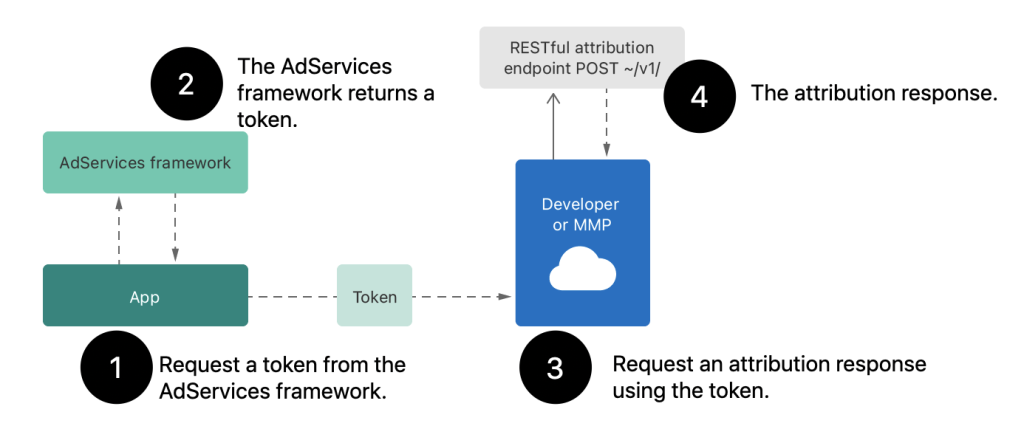Apple Search Ads is quickly becoming one of the best way to advertise to iOS users — especially with all the privacy and anti-tracking measures Apple has put in place in the past year. But even advertising on the App Store is getting a little difficult with all of Apple’s privacy improvements. Let’s take a look at how the App Tracking Transparency framework (ATT) and the AdServices framework have affected user tracking and some next best practices for your Apple Search Ads.
ATT Framework & AdServices Framework
With the release of iOS 14.5, Apple has introduced the ATT Framework which is required “if your app collects data about end users and shares it with other companies for purposes of tracking across apps and web sites”. As a developer, you need to get explicit opt-in consent (displayed as a prompt in your app) from a user in order to track them in, with “do not track” being the set default.
What is important to note here is that Apple Search Ads is considered first-party data and will still provide attribution data regardless of ATT opt in status, thanks to the AdServices framework that Search Ads relies on. Below is the flow of how AdServices works:

AdServices Framework Payload Responses
The AdServices framework provides and attribution payload detailing the campaign, ad group, and additional install information. The only difference in payload for users who opt out is that there is no clickDate returned from Apple’s servers, which we’ve highlighted below:
Detailed Payload
{
"attribution": true,
"orgId": 40669820,
"campaignId": 542370539,
"conversionType": "Download",
"clickDate": "2020-04-08T17:17Z",
"adGroupId": 542317095,
"countryOrRegion": "US",
"keywordId": 87675432,
"creativeSetId": 542317136
}
Standard Payload (missing the clickDate value)
{
"attribution": true,
"orgId": 40669820,
"campaignId": 542370539,
"conversionType": "Download",
"adGroupId": 542317095,
"countryOrRegion": "US",
"keywordId": 87675432,
"creativeSetId": 542317136
}
MMPs Response to ATT
If you use a MMP such as Adjust or AppsFlyer to track downstream metrics, you probably noticed a stark decline in the metrics you’re tracking. There have been a few “band-aid” fixes including:
- Aggregated Attribution: This method takes the IDFA or other device data and relays surface level reporting without exposing user-level data. While the final data is still anonymous, this method does defy Apple’s User Privacy and Data Use Policy.
- Cross-Customer Identity: Cross-Customer Identity links device data when available from an attributed click and install. This allows a MMP to reference this data for attribution on another user’s app where attribution is not possible, essentially resulting in a co-op of user data.
Optimizing your Search Ads
With Apple Search Ads quickly becoming a more attributable and trackable source, more and more advertisers are shifting budget to Search Ads. As Apple continues to expand the offering (News, Stocks and other placements), there will be even more demand. It’s more important now than it’s ever been to implement a proper ASA strategy that is going to maximize your ROI and keep your costs down.
If you’re interested in taking your Apple Search Ads to the next level and maximizing your investment, our team bring years of experience, proprietary automations and programmatic technologies to the table. With The ASO Project, you get the in-house custom technology and man-power needed to succeed.




